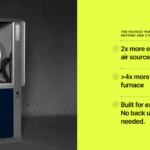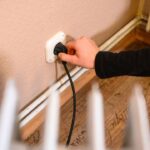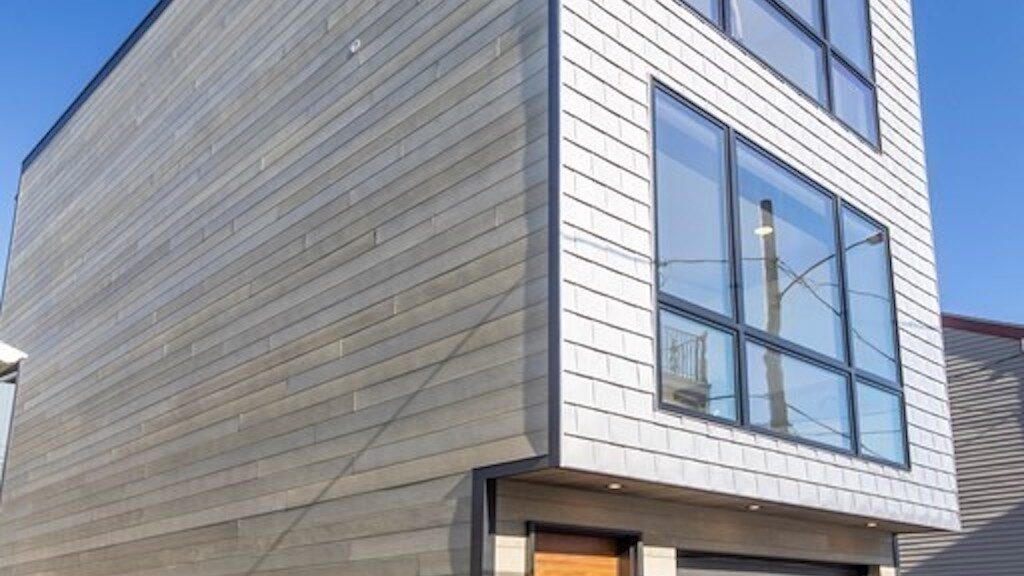The Clean Energy Home Series (Part 1): What is a heat pump? – Environment Maine
Energy Disrupter
Our clean energy intern Adelina Sederman writes about the benefits of clean efficient heat pumps for heating and cooling.
My family, like most families in the United States, relies on a gas furnace for our home heating system. That means that every time we crank up the heat on a cold New England day, we are burning fossil fuels in our house.
Right now, three-of-out-every-four Americans still use fossil fuels to run our heating, hot water and other appliances. Powering with gas means that we are missing out on the benefits of renewable energy and polluting the air inside and outside of our homes. Since space heating and cooling accounts for more than half of home energy use, using an electric HVAC (heating, ventilation and air conditioning) system alone can make a big difference in transitioning America’s homes to run on clean energy.
Specifically, adopting an electric heat pump is one stellar solution that will replace gas with renewable energy for heating and cooling. Advances in electric technologies have made heat pumps more efficient and reliable than ever, but many homeowners aren’t aware of these somewhat recent improvements and the benefits of electrically run HVAC systems. Heat pumps are now suitable for all climates, no matter how extreme or temperate, and they can last up to 15 years.
Heat pumps are also far more efficient than fossil fuel-powered appliances. Whenever it comes time to turn on the heat in the winter, my family feels like we are wasting energy because we’re burning gas. But with a heat pump powered by such renewable sources as rooftop solar panels or offshore wind turbines, you know that your energy source is clean, efficient and abundant.
When it comes to buying a system, there are two heat pump options for your home HVAC system: air-source and geothermal. Air-source heat pumps transfer air between environments, moving heat into a building to increase the temperature and cooling by moving heat out. On the other hand, geothermal heat pumps use temperature from the ground rather than air since heat is relatively stable in the Earth.
Both air source and geothermal heat pumps are far more efficient than their gas-powered counterparts. Heat pumps have a coefficient of performance (COP) of 3.0-6.0 in comparison to gas furnaces with a COP of 1.0. This means that heat pumps are producing 3 to 6 times as much heat per unit of energy input as furnaces. Additionally, pairing heat pumps with solar panels to generate the electricity will give you a true clean energy home that can reap all the benefits of renewable power.
It’s time for us to transition to electric heat pumps for heating and cooling. Gas furnaces have long lifetimes and installing new ones can lock us into another decade or so of dirty energy use. In order to reach carbon neutrality in 2050, we need to stop new installations of gas heating by 2025.
In order to electrify every home in America, we must make sure that when every fossil fuel-powered furnace, hot water heater and appliance reaches the end of its useful life, it gets switched out for a clean electric alternative. I know I’m going to have a conversation with my family about switching to a heat pump when our gas furnace is ready to be replaced. And if it’s time to replace your own HVAC system, opting for a clean and efficient heat pump is the way to go.
You can also support the transition to clean energy homes by backing the Zero Emission Homes Act, which is currently being considered in Congress and will reduce the overall cost of purchasing and installing electric appliances like heat pumps. Send a message to your senators today to raise your voice for the benefits of clean, electric homes.
Original Source: https://environmentmaine.org/blogs/environment-america-blog/ame/clean-energy-home-series-part-1-what-heat-pump
















